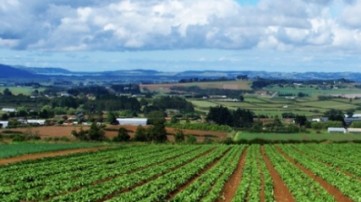Safe Products, Agreement between Regione and University

The Regional Administration for Agriculture of Regione Campania launched an agreement with the Agricultural Department of the Federico II University of Naples to immediately implement some priority actions to strengthen and increase the initiatives already carried out through the Life Ecoremed project, coordinated by the University of Naples Federico II and aimed at monitoring agricultural ecosystems in the Campania plain and at an environmentally friendly remediation of contaminated lands.
The purpose of this agreement is to answer citizens, beyond the existing current Italian laws. To do that, agricultural productions are regarded as real quality environmental indicators for the areas where they are produced. This is why, during sampling and testing, whose results will be available in few weeks, the University has been asked to look for not only Lead and Cadmium, as provided by laws, but also for more chemical pollutants whose limits are not ruled. Moreover, researchers from the Federico II will set the actual bioavailable fraction of each metal possibly occurring in the lands, that is the share actually able to transfer from land to vegetables. Up to date, in fact, reasoning has been carried out about total concentrations that often do not represent a real pollution risk for agricultural productions.
The aim is to provide definite parameters and, to do that, tests and studies carried out by the Federico II University will supply references that current laws are not able to provide.
In few weeks, the Life Ecoremed project, funded by the European Union, will supply online charts where possible levels of land pollution of the Agro Aversano-Litorale Domizio area will be marked. The charts have been drawn through the processing of thousands of data resulting from the sampling activity of last years.
The aim is also to verify the detection of the bottom levels of those heavy metals that, due to the nature of volcanic lands, are naturally found in those lands not regarded as contaminated in the area included between the province of Caserta and Naples.
Regional Minister for Agriculture Daniela Nugnes stated: “Once this threshold has been established, we will carry on with the health state of farming lands of risk”.
A similar approach will affect the irrigation waters that currently lack a specific and univocal set of rules. Ms Nugnes added: “We commissioned the Federico II University to draft a project that, based on the groundwater bottom values, will enable us to have an overview and referral parameters aimed at understanding when water is not suitable for irrigation, and techniques, that sometimes are very simple, to enhance the quality of waters and make them suitable for irrigation purposes”.
She carried on: “It is worthy pointing out that under a public and private partnership, the Organisations of producers, as well as some farming professional organisations, in order to give answers to citizens who urge to know for sure that agricultural products from the Campania Plain are not contaminated, joined the analytical Protocol for determination aimed at ensuring the comprehensive quality of products, drafted by the Regional Administration for Agriculture together with the Agricultural Department of the Federico II; moreover, they have signed agreements on their own with the University that is already carrying out sampling activities in the concerned farming businesses. Once more, results will be reported to the Regional Administration and moreover, they will be available on a dedicated website where the examined product will be related to the single business; examinations include not only all potential pollutants, but also the DNA integrity that is one of the most modern assessment method in environmental quality”.
Both cooperation agreements aim at giving definite answers starting from consumption products. These are additional tools that combine with the standing technical taskforce for the protection of agricultural products already active at the Regional Administration and the Memorandum of Understanding to monitor the farming production in the areas of Caivano and Casal di Principe.
Ms Nugnes ended: “This is the only way to state the value of Campania agriculture and act securely asking for the banning of farming activities in those areas where criticalities are found and implementing environmentally friendly remediation protocols that have already been drafted under the Life Ecoremed project, where Regione Campania is a partner”.
